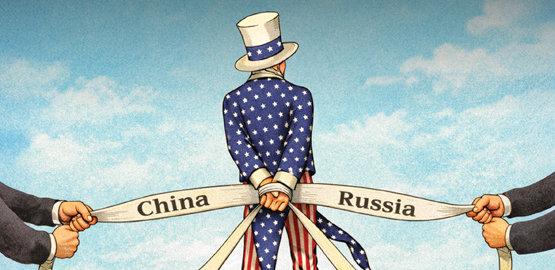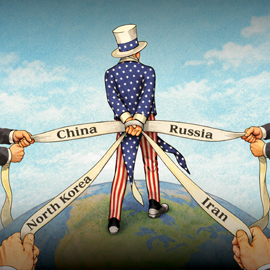News
Shield of the Republic: Security in the Indo-Pacific (with Charlie Edel)
Eliot and Eric welcome Charlie Edel, Australia Chair at the Center for Strategic and International Studies, to discuss security in the Indo-Pacific, the role of Australia, the AUKUS partnership, John Quincy Adams and U.S. foreign policy—do the “restrainers” read Adams correctly?—and the role of literature in understanding history.
The US Needs a New Approach to Producing Weapons. Just Look at Ukraine.
Put bluntly, although the United States and its allies have been able to resupply Ukraine, the United States cannot count on similar help should the roles be reversed.
The Lessons of Ukraine for Taiwan—and the U.S.
Although Ukraine’s potential membership in NATO has been discussed for more than a decade and half, it is not a member—and so the alliance is not committed to defend it, nor to attempt to deter attacks against it. (Indeed, a vote over whether to deter an attack against Ukraine would likely have splintered the alliance.) Vladimir Putin took full advantage of Ukraine’s living in this gray zone where its frequently voiced aspirations for NATO membership are not matched by a security guarantee. Still, after Russia’s invasion began, NATO’s guilty conscience prompted decisions to funnel arms and equipment into the beleaguered country; the Western anti-tank and anti-aircraft systems reinforced and enhanced the ability of Ukrainian defenders to wreak enormous damage on the Russian aggressor, rendering combat ineffective some 15 to 20 percent, if not more, of the Russian battalion tactical groups devoted to the operation.
LEADERLESS, CUT OFF, AND ALONE: THE RISKS TO TAIWAN IN THE WAKE OF UKRAINE
As policymakers and analysts evaluate the war in Europe for insights that might be applicable to Asia, they are reaching three early conclusions: It should serve as a cautionary tale for China, a model for Taiwan, and a playbook for the United States. But what if the conflict yields a more ominous set of lessons — lessons that Beijing could use to seize the island democracy?
Many observers have become more skeptical that China would launch an assault on its “wayward province” after seeing Russia struggle on the battlefield and suffer an economic backlash. Some have become more optimistic that Taiwan could defend its de facto sovereignty as Ukraine imposes heavy costs on invading forces. And others have become more confident that the United States can rely on “integrated deterrence” to manage the threat of Chinese aggression, which was beginning to appear close at hand.
Yet the war in Europe might instead convince Chinese leaders to double down on efforts to shatter Taiwan’s will to resist should deterrence break down. Indeed, Russian failures and Ukrainian successes to date might incentivize China to issue threats and use force earlier to make U.S. military intervention less likely and Taiwanese capitulation more so.
Zelensky, Churchill, Reagan (with Andrew Roberts)
Eric and Eliot host British author and historian Andrew Roberts and discuss his revisionist account of King George III and how a good man was nonetheless the monarch under whom the American colonies were lost.
Zelensky Makes His Plea to Congress for Ukraine
On today’s episode, Steve speaks with Eric Edelman, a member of the U.S. foreign service for 28 years who served as a U.S. ambassador, a national security adviser to the vice president, and an under secretary of defense. They discuss Vladimir Putin and his strategy going into the invasion of Ukraine, Volodymyr Zelensky’s address to Congress, and finish with the latest on the Iran deal.

























